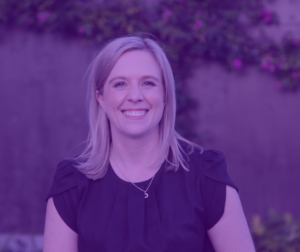You see it everywhere. People asking for recommendations on CRM software. But there is a lot of confusion around exactly what a CRM is and does and when asked the question about what they want to use it for, more often than not, its not a CRM that they need.
So what exactly is CRM software and what does it do for your business?
CRM stands for Customer Relationship Management and essentially it’s all about keeping your customers happy. It’s a strategy for building relationships with current and potential buyers and understanding their needs.
CRM software is a tool that allows you to collect, segment, automate and analyse data about your current and potential customers to be able to nurture your relationships and better target your future marketing activities. Basically, it allows you to identify your most valuable customers, record communication between your customer and your business, and increase your customer loyalty by providing customised products and services.
The features of most CRM software include:
- Contact management – record customer data such as name, phone, email etc.
- Lead management – track all communication activity to see how your leads are progressing
- Campaign management – to run and manage email marketing and advertising campaigns
- Automation – to speed up the delivery of your services (such as delivering an ebook), responding to customer support requests, delivery of marketing campaigns
- Reporting and dashboards – to provide you with insights on market trends and your customer behaviour
When used correctly, it can provide you with powerful data to help you understand your market better. But just remember that CRM software is just a facilitator. If you are already failing to follow up on a sales lead, having a CRM is not going to improve on that (although you can set reminders and tasks to follow up)!
What a CRM is not and what you need instead.
A CRM will not help you manage jobs, projects, quality management, budgets, or time.
This is where Project Management (PM) software or job management comes in. Once your prospect has turned into a customer, the work that you are doing for them may end up in your project or job management software where you can track the project lifecycle:
- Plan out their job
- Create tasks, deadlines and status reports
- Share documents and collaborate with the stakeholders involved
- See at a glance all jobs mapped out on a calendar including individual tasks
- Track time on individual tasks
- Track budgets and resources
Simply put, project management and job software helps you to plan, organise, coordinate and complete projects / jobs / workflows.
Before you decide…
Work out what it is you need. What are the outcomes you want to achieve?
Plan out how you manage your relationships with your current and potential customers. Think about what happens before they become a customer, while they are a customer, and how you keep them coming back.
Make sure you have processes in place for managing these parts of your business so that if you do decide to go down the either of these paths, that the software is going to work for YOU. It’s worth knowing that the more a piece of software does, the longer the learning curve will be for you to get the most out of it.
Remember technology is there to facilitate. If you are not going to improve your sales processes then having a CRM is not going to help you convert more leads but instead become an expensive database for managing your contacts.
And if you are wanting to have more transparency and efficiency in how you deliver what it is that you do (jobs, projects, workflows), then you need a Project Management or job management system, not a CRM.
The easiest way to remember what you need and when, is aCRM is for before and after (sales and marketing), PM is for during (operations and delivery).
Our software recommendations.
At ProjectBox we use both CRM and PM software.
ActiveCampaign for our CRM utilising the email marketing, automation and lead management features.
ClickUp for our Project Management where we track and collaborate on projects that we are working on both internally and for our customers.
